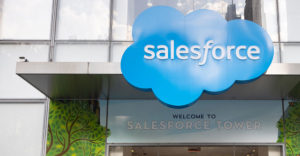Salesforce had its quarterly earnings call the other day. No spoiler, they made a lot of money, grew significantly, and generally had fun doing it. However, the real news from the call, for me, was that Bret Taylor is stepping down from the number 1-A position of Co-CEO and Co-Chair to return to his roots in entrepreneurship.
Taylor’s fingerprints are all over Silicon Valley. If he never starts another company, he’ll be remembered for co-creating Google Maps, his stint as the CTO of Facebook (now Meta Platforms), and the chairman of Twitter, Inc.’s board of directors.
Taylor proved his leadership chops and business acumen over the summer when, as chair of Twitter, he went toe to toe with Elon Musk over Musk’s acquisition of the social media company and forced Musk to abide by the deal he struck. Who knows, maybe he plans to hang out and purchase Twitter for a song once Elon is finished wrecking the place. I don’t know; it’s above my pay grade.
Whatever happens, Taylor’s incipient move got me thinking about the nature of entrepreneurship in the twenty-first century because it’s so different from what it was for most of the 20th century and not necessarily for the best.
Entrepreneurship in the Research Lab
Today’s entrepreneurship reminds me of the kind of company and capital formation that the first economist, Adam Smith, might have seen. An individual inventor works, often for years, to raise money to develop something that fulfills a vision of what the market needs and that people will buy in quantity.
Steam engines come to mind here. Stationary or mobile, ocean-going or land crossing, steam engines and their original applications were the stuff of small inventors’ dreams. Yet the process was very wasteful and time-consuming, so it was natural for capitalists to want to tweak it.
Fast-forward to the late 19th century and entrepreneurship took a new form in the corporate research and development lab. Tomas Edison had one, George Westinghouse and Nicolai Tesla, and many others. Well into the 20th century, the corporate research lab was where great innovation happened, whether at General Electric, a company Edison founded, or the eponymous Bell Labs named for Alexander Graham Bell.
The great thing about the research lab is its efficiency. Edison died with well over 1,000 patents, while the typical entrepreneur today might have a handful or none. In a lab, the inventor has access to materials, other bright minds, and the corporate resources everybody needs, like IT, HR, and, most importantly, capital.
These are all wheels that a typical entrepreneur must reinvent today. So, it’s mysterious to me that the corporate research lab died out in the late 20th century. In part, it was a victim of economizing that gives economizing a bad name.
Supporting Innovation
Salesforce has done a lot of inventing on its own. When it wasn’t inventing, it bought other people’s inventions or at least encouraged a vast community of partners to invest in its platform. Invention has served Salesforce very well.
But here’s the thing: solo entrepreneurship is extremely wasteful. The founder spends inordinate amounts of time raising money from venture capitalists who, in a perverse way of looking at it, spend most of theirs losing it.
Very successful entrepreneur-driven companies are called unicorns, a backhanded way of admitting there aren’t many. Ten years after IPO, many, if not most, startups that were successful to that point are gone, either bought or merged or simply crushed.
So, here’s a thought: Salesforce could do a better job fostering innovation if it had a corporate lab, just like Edison. It would be a place where invention ruled in a different way than how it interacts with the community through its platform or its investment arm today.
Salesforce Labs could be a place for not simply trying ideas about conventional IT or even CRM but for producing information inventions on a regular basis. The lab should not be limited by much, either. The company has a serious interest in climate and green efforts. What could it invent to further the greening of the planet? I have ideas.
Invention Through the Ages
Consider the history of invention; the first inventions in any category simply automated what was already there.
Power looms did what artisans did but faster, and steam engines pumped water out of mines and raised coal to ground level — things previously done largely by muscle power. Light bulbs replaced whale oil and then kerosene. They made reading at night less expensive and more reliable, though they didn’t reinvent information transmission — that came later.
In our time, computerization has mainly been dedicated to managing data in increasingly smaller formats, not to generating new information per se. Only lately have we begun seeing whole new processes mediated by AI and social media, and there’s much more to do.
However, the old venture capital style seems hugely wasteful and mismatched for these times. It was appropriate for the earliest part of category and market formation and automation, but today it seems the few survivors from those early days, like Salesforce, know the ropes better than the kids on Sand Hill Road.
There’s also the matter of serendipity. The microwave background radiation that is the signature of the Big Bang was discovered accidentally in 1964 by Arno Penzias and Robert Wilson, working at Bell Labs in New Jersey. Of course, they weren’t looking for evidence of the Big Bang, but they processed their data, made startling conclusions, and won a Nobel Prize in the process.
Corporate Research Lab for Today’s IT
Many less-exalted discoveries came out of other labs, too, notably NASA. Beginning in 1976, NASA started publishing an annual catalog of discoveries and inventions called “Spinoff.” In the internet age, it became a website. It’s cool.
One economist whose name I forget called the corporate research lab a place that invented inventing. Maybe it’s time to reinvent the corporate research lab for IT in the 21st century.
If Salesforce isn’t a good pick to bring back the corporate research lab, I don’t know who could. I think Bret Taylor could run it, which might be a greater use of his prodigious talents.
























































